
Published:
Readtime: 10 min
Every product is carefully selected by our editors and experts. If you buy from a link, we may earn a commission. Learn more. For more information on how we test products, click here.
Figuring out how to fall asleep quickly might be the exact thing keeping you awake, but don’t let that stop you from trying. After all, getting a good night’s rest is fundamental to an overall healthy lifestyle, enabling a sound mind and body alike. Who wouldn’t want to do it fast and with a relative degree of consistency?
Meanwhile, more and more people are struggling to fall asleep at all these days, often resorting to extremes in an effort to get some rest. But surely we can help you learn how to fall asleep (and fast) without pills or other fleeting and potentially harmful solutions. Either way, we’re going to try!
By employing military sleep techniques or simply improving upon your nightly rituals and patterns, you can cultivate a methodology that works both now and forever. Naturally, some methods will work better than others and that’s because no two people are exactly the same, nor are their sleeping habits. Bearing all that in mind, here’s how to get to sleep fast.
Why Can’t I Fall Asleep?
As you toss and turn for the fifth night in a row, the question plays like a broken record inside your head: why can’t I fall asleep?! There are probably some expletives thrown in, but we’ll leave those to the imagination. Who knew that figuring out how to fall asleep could prove so taxing, especially when sleep itself is built-in to the human life cycle?
First and foremost: you’re far from alone. In fact, most current studies show that millions upon millions of people are suffering from a lack of sleep in our modern world. In some cases, that means going to bed too late before work and thereby crunching out a mere few hours of sleep. In other cases, it means bouts of full-blown insomnia, the kind of which can keep someone up for days.
Hence, we can’t tell you exactly why you’re struggling to fall asleep. What we can do is provide a list of potential causes for your consideration. Read through the list and see which causes—if any—apply.
- Stress due to an important life change
- General anxiety
- An unhealthy diet or lifestyle
- Drinking too much caffeine or drinking caffeine too late in the day
- Drinking too much alcohol
- Lack of exercise
- Exposing yourself to blue light right before you go to bed
- Focusing on how to fall asleep without letting the mind achieve a relaxed state
- Too many stimuli during the night
- Environmental factors (bed, temperature, etc) that render you uncomfortable
- Underlying behavioural conditions like ADHD or OCD
- Physical ailments such as sleep apnea or asthma

Why Is Sleep So Important?
We don’t need to pull up the latest study to explain why sleep is so important to both your mental and physical health. That’s because you’ve probably experienced the toll of insufficient sleep firsthand. Your thoughts slow down. Your body slows down. Your view of the world gets impaired, as does your overall drive.
At the end of the day, sleep allows the body to recharge and if you’re not waking up with a full power bar, then you’re not fully powered. What’s more, a consistent lack of sleep has been correlated to an increase in health problems such as heart disease, asthma, depression, high blood pressure, and stroke.
Now that we’ve properly stressed you out, let’s turn the tables by helping you learn how to fall asleep quickly.
How to Fall Asleep Quickly (Techniques)
There was probably a time when falling asleep quickly wasn’t necessarily a challenge for most human beings. However, we live in a different world now, where stimulations and distractions lurk behind every corner. That’s not to mention the fact that many of us don’t endure hours of hard labour, which can naturally create a sense of exhaustion at the end of the day.
It’s then no wonder that so many people are tossing and turning for hours every night, not so much slipping into a slumber as much as they are beating themselves into submission. Should you be similarly struggling to fall asleep fast, use one or more of the following methods to start crushing Zs like a trained soldier.

1. The Military Method
What, you thought we were joking when we said you’d be sleeping like a soldier? Not even a little! That’s because trained soldiers have figured out how to fall asleep fast and with considerable efficiency. It’s even been said that certain military methods will have you nodding off in a mere 10 seconds flat.
At the root of most military sleeping techniques are breathing and relaxation exercises. It’s all about entering a stress-free zone so that your mind can seamlessly drift into slumber. Try the following method (also known as the 10-second method):
- Relax every muscle in your face
- Release tension by dropping your shoulders and letting your arms and hands drop to your sides
- Breathe out and relax your chest
- Let the relaxation travel down to your legs, thighs, and feet
- Vacate your mind of stress by imagining a happy place
- If your mind isn’t shutting off, repeat the mantra “don’t think” over and over again
- Without realising it, you’ve fallen asleep
2. 4-7-8 Breathing Method
If you’ve been Googling “how to get to sleep,” then odds are you’ve heard of the 4-7-8 method, which invokes mental relaxation by way of a specific breathing pattern. More than a powerful sleeping technique, it’s also an effective way to tackle sudden bouts of stress or anxiety. Here’s how to use it for sleeping purposes:
- Place the tip of your tongue behind your upper front teeth
- Exhale through your mouth, making a “whoosh” sound
- Close your mouth and breathe in through your nose while counting to four in your head
- Hold your breath while counting to seven in your head
- Open your mouth and exhale, once again making the “whoosh” sound while you count to eight in your head
- Repeat this pattern until you fall asleep
3. Progressive Muscle Relaxation (PMR)
Just a reminder: these methods are meant to help you learn how to fall asleep quickly. For a rundown of general sleeping tips, check out this article. With that little disclosure out of the way, let’s move on to progressive muscle relaxation (PMR), aka deep muscle relaxation.
Like other techniques, PMR tries to induce a state of physical and mental relaxation, thereby creating a seamless transition into slumber. The method is distinguished through a series of mini-muscle exercises, which are designed to build and release tension throughout the face and body. Here’s how to do it:
- Arch your eyebrows as high as they can go and hold for five seconds
- Relax the eyebrows and forehead muscles and wait 10 seconds before moving on
- Smile as wide as you can and hold for five seconds
- Relax the mouth and cheek muscles and wait 10 seconds before moving on
- Squint your eyes and hold for five seconds
- Relax your eyes and wait 10 seconds before moving on
- Tilt your head slightly until your looking at the ceiling and hold for five seconds
- Relax your neck into the pillow and wait 10 seconds before moving on
- Practice the same tighten and release pattern throughout the rest of your body, moving from your triceps to your chest to your thighs to your calves to your toes
- Allow the body and mind to drift into sleep
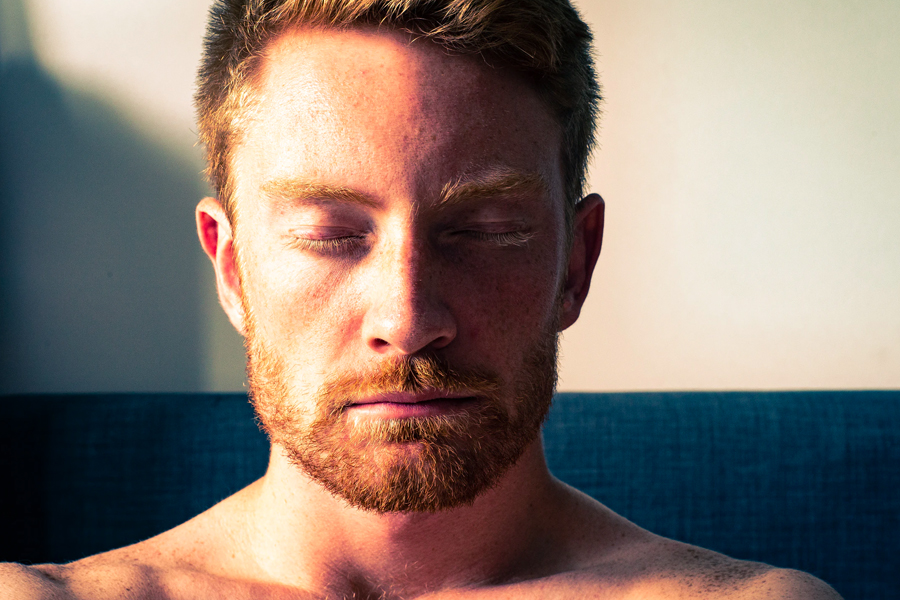
4. Free Your Mind with Meditation and Breathing Exercises
We said it before and we’ll say it again (in different words): figuring out how to fall asleep fast can often be your greatest inhibitor, cranking up the voice in your head as opposed to taming it. Practice some reverse psychology by trying to stay awake instead, which allows the mind to let go of certain preoccupations.
Then we have the power of meditation and its assortment of breathing patterns, mantras, or imagination-based techniques. And while we’re not suggesting that you start chanting out loud in the middle of the night, you can easily learn from the process. For instance, visualising a calm place or counting down from 100 will allow the mind to drift. Sleep will naturally follow.
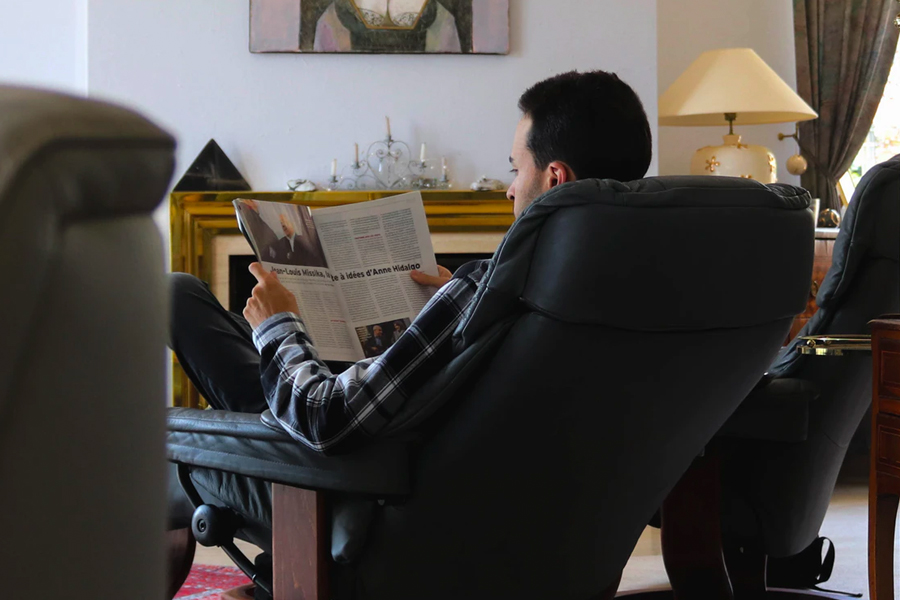
5. Read a Book
We don’t want to sound like an old man waving his fist, but would it kill you to put down the iPad or video game controller and pick up a book every once in a while? You might just be improving your sleep in the process. That’s because digital light sources and other forms of stimuli can provide a proverbial jolt to the brain right before bedtime, making sleep much harder to come by.
Reading, on the other hand, provides a miniature workout for the eyes and brain. And what follows a workout? Rest, naturally. That said, you might want to stay away from the pot-boilers and page-turners, which can be hard to put down!
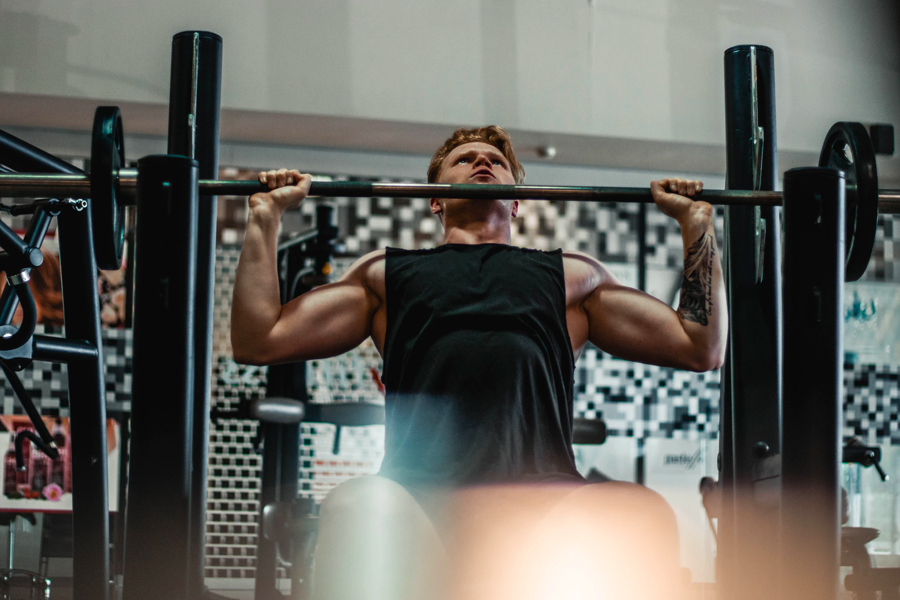
6. Exercise
It seems like fitness is the answer to everything these days, but that’s because we’re living more sedentary lifestyles. By physically working out in one form or another, you’re maximising the body’s potential and paving the way for a natural state of exhaustion. Furthermore, proper exercise reduces stress and helps clear the mind of internal clutter. Hmmm…we guess fitness is the answer to everything these days.
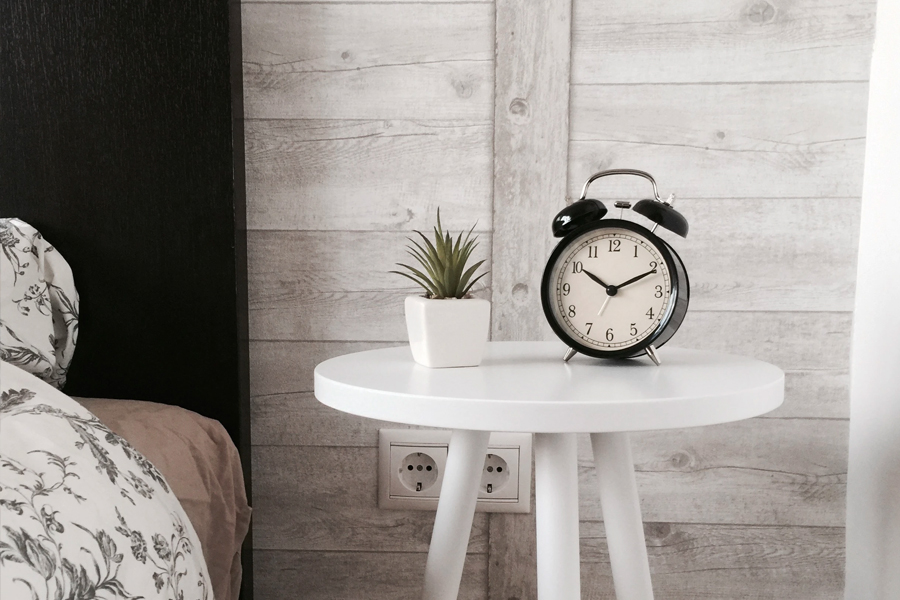
7. Stick to a Routine
Developing a consistent routine (or circadian rhythm, if you will) is one of the best ways to fall asleep quickly and effectively. By going to bed and waking up at the same time every single night and day, you’re falling into a natural pattern. The more variation you inject, the more your body and mind will struggle to adjust. It’s just common sense.
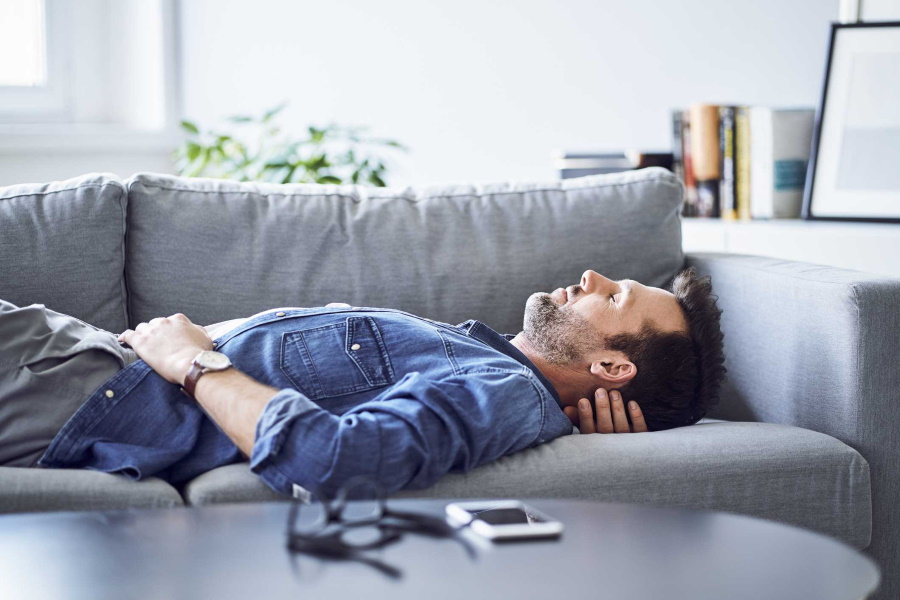
8. Follow the 13 Secrets to a Better Night’s Sleep
Sometimes, figuring out how to fall asleep at all is far more important than figuring out how to fall asleep fast. In a separate article, we uncover the secrets to achieving a better night’s sleep. Read it and weep! Oh wait, we meant to say read it and sleep.
General FAQ
In the military, soldiers practice a method that involves relaxing the body and clearing the mind of all thoughts. It reportedly helps them fall asleep in 10 seconds flat.
One of the best ways to fall asleep fast is to practice the 4-7-8 breathing method, which involves a series of breathing and facial exercises. Progressive muscle relaxation (PMR) is another effective method.
The amount of time it takes to fall asleep will vary from person to person. Many people fall asleep in the first 10-20 minutes on average, while others can take up to 1-2 hours.
Sometimes, pressing the restart button is the best way to tackle temporary insomnia. That can mean getting out of bed and walking around until you feel tired or even reading a book.
You’ll also like:
An Aussie Doctor Answers All Question About Coronavirus
13 Secrets to a Better Night’s Sleep
How to Improve Your Memory































Comments
We love hearing from you. or to leave a comment.